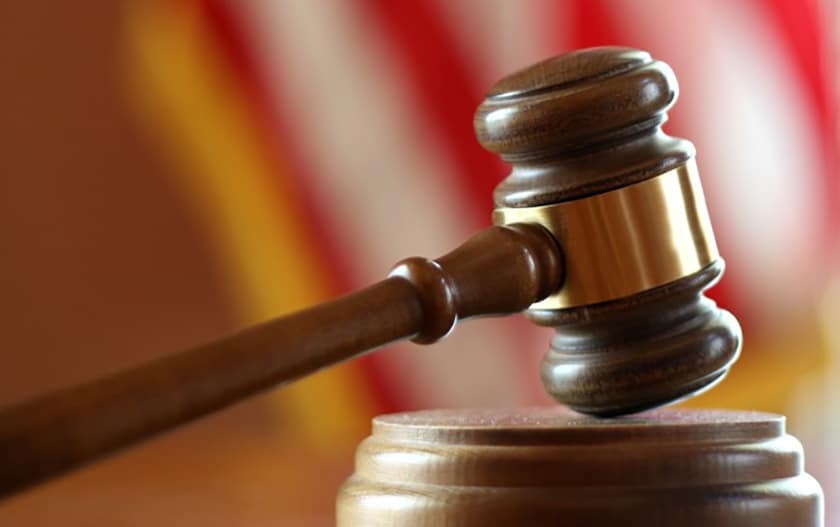Did you know that according to the National Floor Safety Institute, the leading cause of hospital emergency room visits (21.3%) accounts for over 8 million visits? And slips and fall accidents account for over 1 million visits or 12% of total falls.
Often, injured victims have no other choice but to file a lawsuit against those responsible for their injuries. Once you have decided to take the responsible party to court, you might wonder whether the effort and litigation are worth the hassle.
This article explores common slip-and-fall settlements and explains the various factors that can impact settlement amounts. We also offer tips on how to maximize your settlement for a fair and just outcome.
What is a Slip and Fall Settlement?
A slip and fall settlement is a resolution made between an injured person and the property owner or their insurance company. It involves the injured person receiving compensation for their injuries and related expenses in exchange for giving up the right to sue.
Settlements can be reached through negotiations, mediation, or arbitration. In some instances, a lawsuit may be required to reach a settlement.
Factors that Affect Slip and Fall Settlements.
Everyone wants to recover a reasonable amount of damages for all the physical harm, financial burden, and emotional trauma they had to go through. However, no two cases can ever be the same. The circumstances of each claim differ vastly, and so does their worth.
As a matter of fact, it is a combination of factors that ultimately will determine how much compensation you’ll get. Let’s take a look at some of these factors.
Severity of injuries
A slip-and-fall settlement amount is mainly determined by the severity of your injuries. If you’ve sustained serious injuries or permanent damage, you’ll probably get a more substantial settlement. This is due to the following reasons.
- People with severe injuries usually need expensive long-term care. This cost is usually the deciding factor for a slip-and-fall payout. These expenses may involve hospitalization, surgery, medication, rehabilitation, and assistive devices.
- Lost income. Severe injuries can cause absence from work or even prevent a person from returning to work. This results in financial loss. This loss can be estimated by your salary, wages, and other sources of income affected by the injury. Furthermore, if the injury causes disability, the compensation amount may also include your future earning potential.
- Pain and suffering. When you suffer a serious injury, it can lead to both physical pain and emotional distress, disrupting your normal life. You may experience physical discomfort, anxiety, depression, and loss of overall enjoyment of life. Consequently, the compensation amount is usually based on the injury’s severity, how long the recovery process takes, and its impact on your daily life.
Liability
To collect damages, you will need to show that the property owner or their workers acted carelessly and caused your injuries. This negligence (or carelessness) can be scaled and measured by its severity and the level of dangerous outcomes it could have caused.
First, the accused will try to deny any responsibility on their part, which can lead to a long or denied settlement. Despite that, it is upon your attorney to prove with evidence that the person did not care for your safety when he or she was supposed to.
Insurance coverage for the other party
It’s mainly insurance companies that pay for losses suffered by another person at the hands of their insured clients. Generally speaking, the greater a person’s insurance coverage, the more likely it is to recover compensation. These include commercial buildings, such as private corporations and local councils and authorities.
Let’s say you slipped and fell on the business property of a company whose employee carelessly caused you to fall. The owner has a commercial insurance policy that covers up to $1 million, but you are asking for damages of $1.5 million. Your lawyer might be able to get more money from the owner’s umbrella insurance policy. This type of policy goes beyond the normal coverage and can cover the extra expenses.
If the owner has a $5 million umbrella policy, your lawyer could try to get a settlement that includes both policies. That way, you’ll get all the money you need, even if it’s more than what the primary policy can pay.
Your income at the time of the accident
Apart from the compensations, you have an additional option to claim all lost income and inflows from the opportunities you could have availed of had the accident been avoided. Many victims are left bedridden and unable to work for a substantial period post-accident. At other times, they may even suffer from long-term or permanent disabilities.
Supported by your employment record and payslips, you can establish that the accident left you worse off in terms of loss of future income. In a permanent arrangement, the settlement can provide a lifetime steady inflow of money.
Comparative Fault and Contributory Negligence
Comparative fault or contributory negligence is a legal concept used in some states to determine how much money a plaintiff can receive in a personal injury case. This principle recognizes that sometimes the plaintiff may have contributed to the accident or injury, and as a result, their compensation may be lessened.
For instance, if plaintiffs are found to be 20% at fault for a car accident, and the damages are $100,000, their compensation may be reduced to $80,000. The rules and procedures regarding comparative fault vary by state.
Some states have pure comparative fault, meaning a plaintiff can still recover damages even if they were primarily at fault for the accident. Others have modified comparative fault, which sets a threshold, such as 50% or 51%, below. That means a plaintiff can still recover damages even if they were partially at fault.
In some states in the US, there’s a rule called contributory negligence. This is a pretty harsh ruling because if you got hurt and contributed as little as 1% to your own injury, you might not get any compensation at all. The states that follow this rule are Alabama, Maryland, Virginia, North Carolina, and the District of Columbia.
Evidence of the accident
Basically, the evidence your attorney has to back up your claim can affect how much you get in a settlement. This includes things like witness statements, pictures of the accident, and medical records.
For instance, if you slip and fall in a grocery store and hurt your back and get slipped and torn discs, your lawyer will give the insurance company records from your doctor, pictures of the scene, and statements from witnesses. If the insurance adjuster thinks your evidence is strong enough, he or she might offer you a settlement that considers the severity of your injuries, medical bills, and the accident’s effect on your daily life.
So, How Much Can You Expect from a Slip and Fall Settlement?
Not all accidents result in major injuries or long-term damage. If you have a soft injury and the property owner is clearly at fault, you can expect a settlement of $10,000 to $50,000.
For more serious injuries like broken bones, head injuries, or spinal cord injuries, settlements can range from $200,000 or more. However, if the accident resulted in permanent disability or wrongful death, settlements can reach millions of dollars.
Overall, How Can You Maximize Your Compensation?
You can increase your chances of receiving a fair slip-and-fall settlement by taking the following steps:
- Get Medical Attention. Don’t underestimate your injuries, even if they seem small. Get medical help immediately. This will ensure you get the right treatment and create a record of what happened, which can be used as evidence later.
- Document the Accident. Take pictures of the accident, including anything that caused it. Gather witness information, and get a copy of the accident report.
- Be Careful with Insurance Companies. They’re not your friends. They might try to pay you less or question the extent of your injuries. Don’t sign or agree to anything before talking to your lawyer.
- Make Sure You Hire a Good Personal Injury Attorney: A reputable attorney will work with you to get all the information and evidence you need to prove that the defendant caused your injuries. An attorney will gather proof and ensure you get a fair settlement from the insurance company.
Final Thoughts
Experiencing slip and fall accidents can be an absolute nightmare. It can cause severe injuries, bills, and lost income. No matter how small the injury may seem at the time, get yourself to the ER and get medical attention, collect evidence, and hire an attorney.
The strength of your claim is very important during settlement negotiations because it is at this stage that the other party will make an out-of-court counteroffer. Despite the fact that a slip-and-fall claim’s value depends on different factors, the entire process may take months or years. During this period, you may experience financial difficulties.
By partnering with Baker Street Funding, you can receive an advance on your slip-and-fall settlement to get you through this difficult time while your attorney fights for maximum settlement. All our lawsuit loans are non-recourse, meaning there is no repayment until your settlement check arrives. And if you lose, you won’t pay us back.
You can apply for an instant cash advance on your slip and fall claim simply by contacting Baker Street Funding at (888) 711-3599 today!









